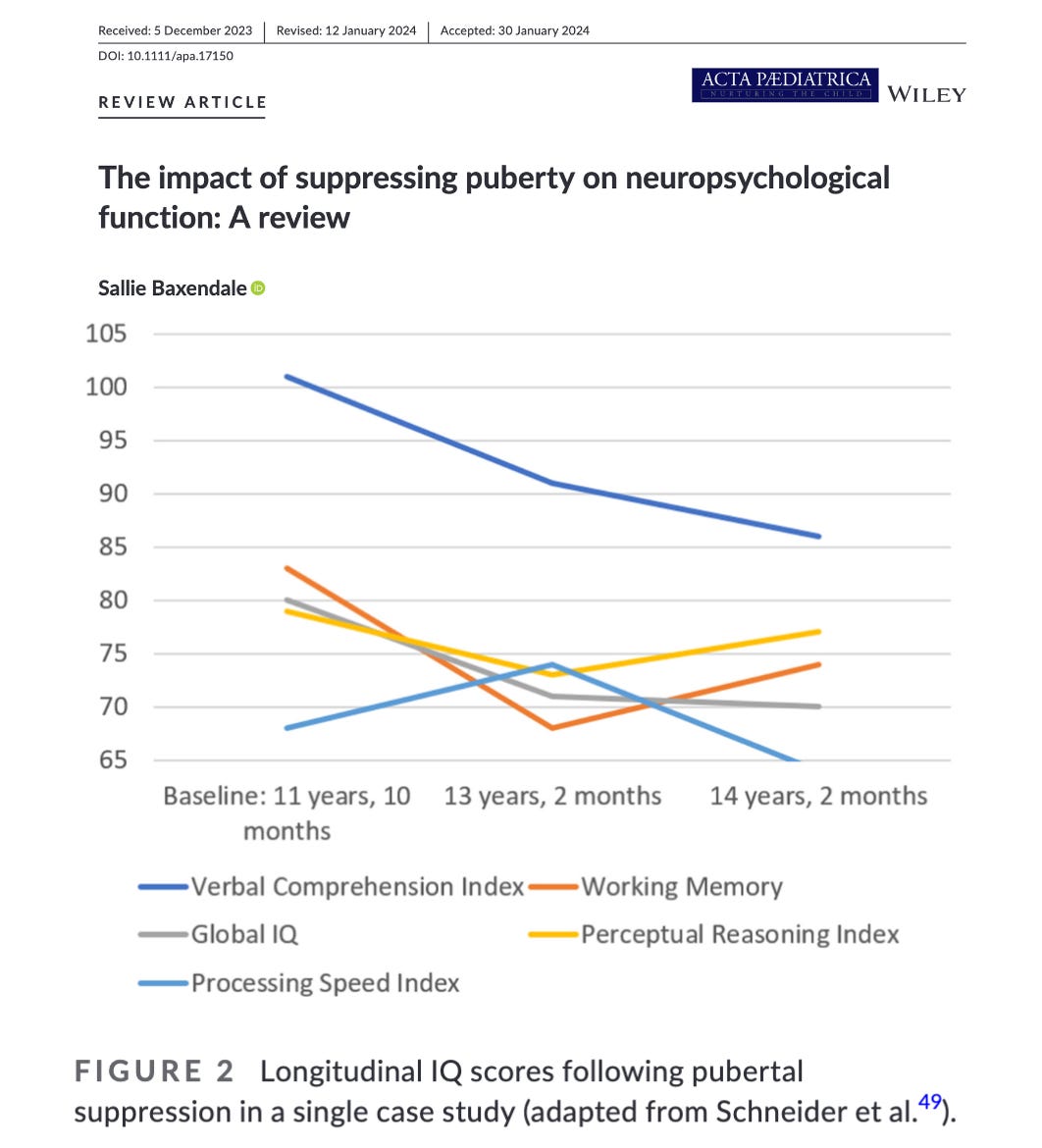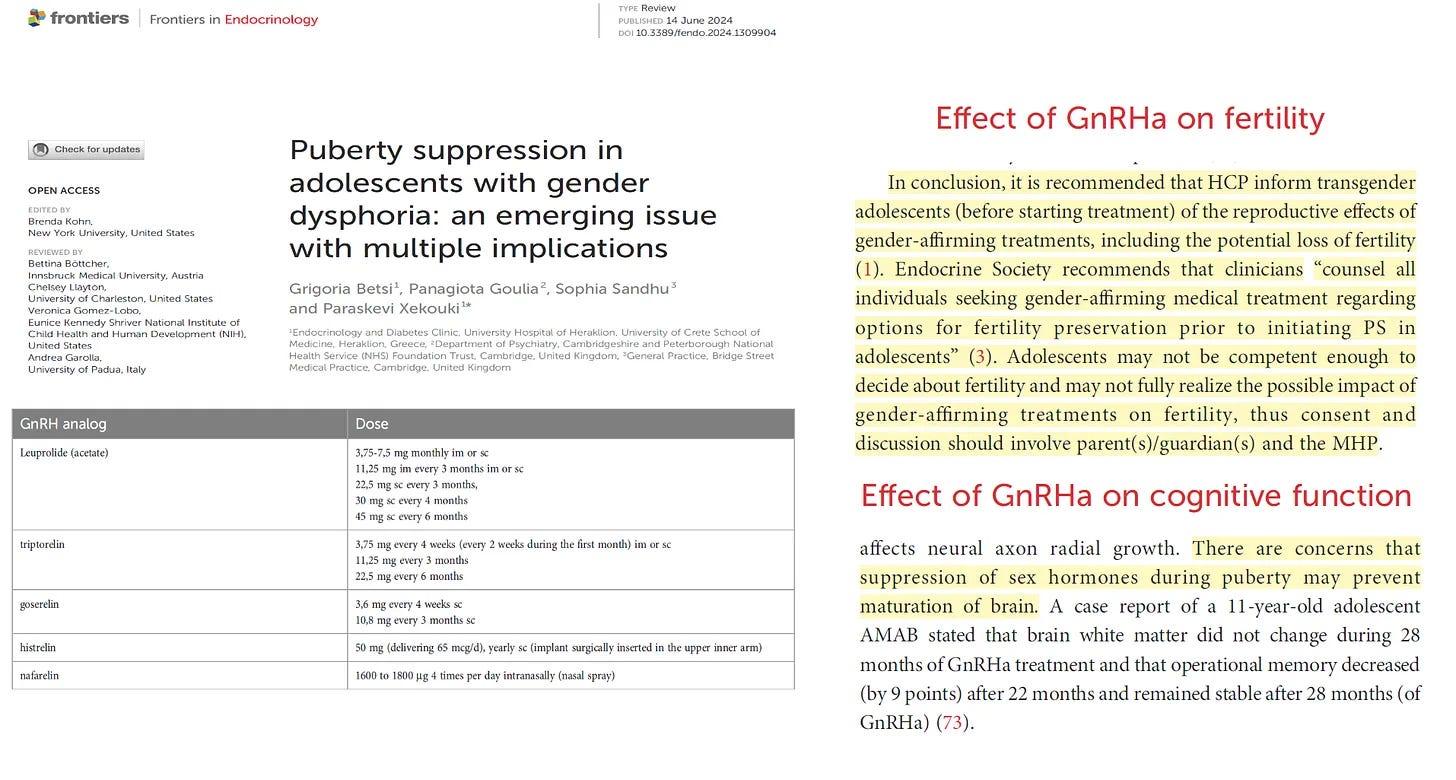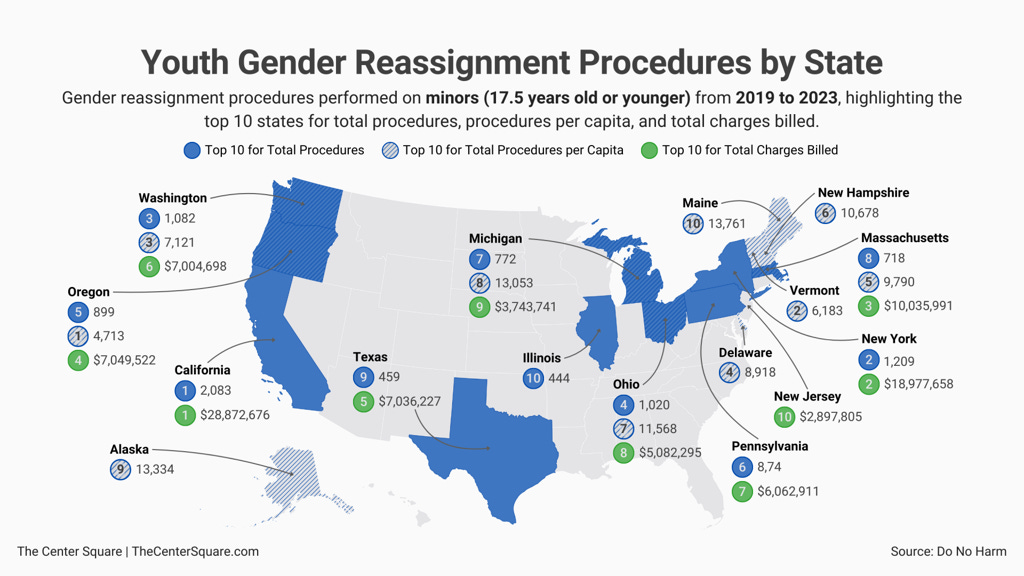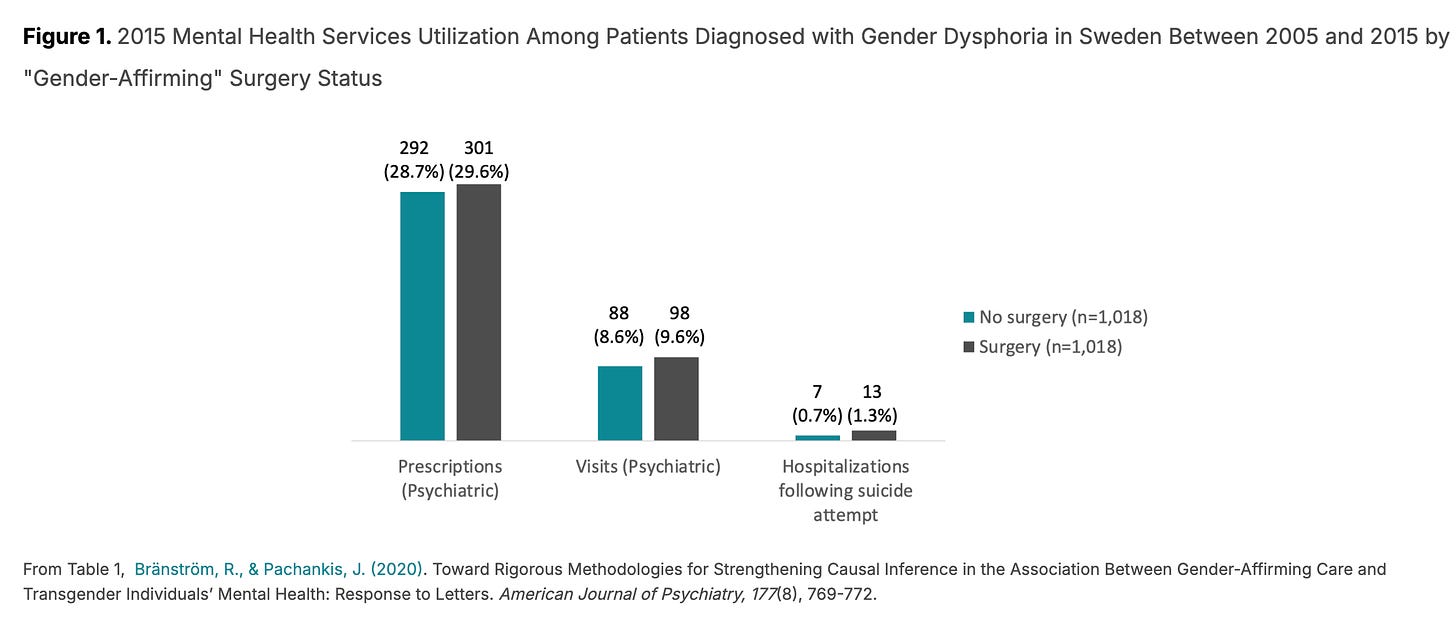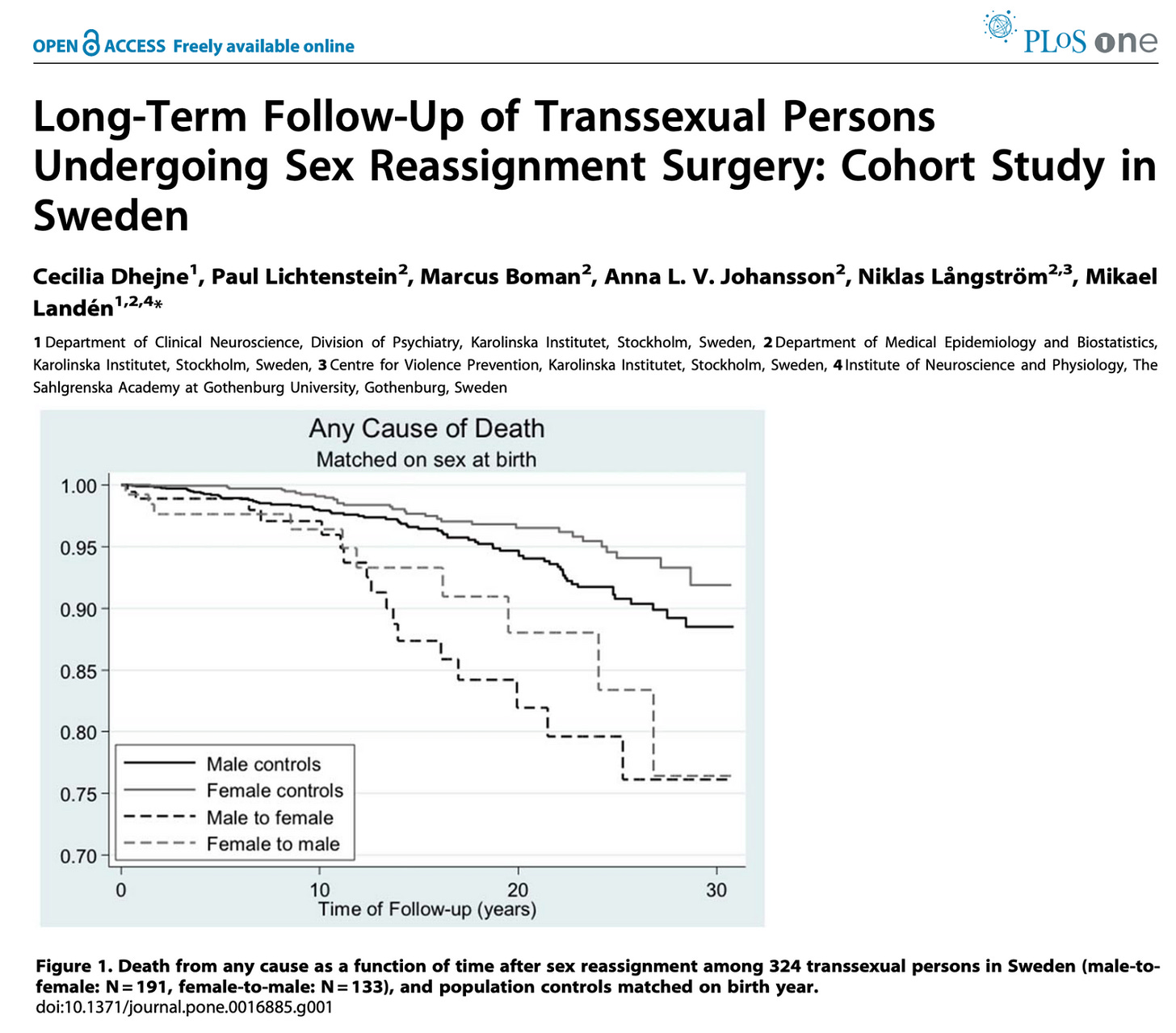Trump Pledges to Halt Government-Sponsored Chemical and Surgical Gender Mutilation Procedures For Minors
Multiple studies support Trump's proposed ban on federal funding and support for gender-affirming care.
by Nicolas Hulscher, MPH
Since President Trump’s election victory last week, the public is eagerly waiting for some positive action. During his campaign, Trump announced a plan to dismantle the unscientific and harmful gender-affirming care policies introduced under the Biden Administration.
Here’s an outline of the Trump Administration’s plan:
Revoke Gender-Affirming Care Policies: Immediately repeal current policies allowing gender-affirming care for minors, including puberty blockers, surgeries, and other treatments.
Ban Federal Support for Gender Transition: Sign an executive order to stop all federal programs promoting gender transition at any age, and seek legislation to prohibit taxpayer funding for these procedures.
Restrict Medicare and Medicaid Compliance: Deny Medicare and Medicaid certification to any healthcare provider involved in gender-transition procedures for minors.
Allow Legal Action for Victims: Support legislation allowing individuals who underwent gender-transition procedures as minors to sue the doctors involved.
Investigate Pharmaceutical and Healthcare Providers: Direct the Department of Justice to examine Big Pharma and healthcare networks for potential concealment of harmful side effects from gender-transition procedures and misuse of puberty blockers and hormones.
Implement School Accountability: Inform schools that promoting gender-transition concepts to children could lead to loss of federal funding and potential civil rights violations.
Promote Traditional Gender Education: Introduce teacher credentialing standards emphasizing the nuclear family, traditional roles of men and women, and celebration of gender differences.
Legislate Binary Gender Recognition: Propose a law recognizing only male and female genders, assigned at birth, and reinforce that Title IX bars men from competing in women’s sports.
Protect Parental Rights: Ensure that parents have the right to prevent gender-transition procedures or changes in gender identity for their minor children without parental consent.
End "Radical Gender Ideology": Oppose the idea of gender fluidity, which Trump attributes to recent radical-left influence, aiming to eliminate its promotion in federal policies.
This plan is supported by science. Puberty blockers can lead to detrimental outcomes. A systematic review by Baxendale looking at the impact of suppressing puberty on neuropsychological function found that:
1. Cognitive effects may not be reversible following discontinuation of treatment.
2. No human studies have systematically explored the impact of these treatments on neuropsychological function with an adequate baseline and follow-up.
3. There is some evidence of a detrimental impact of pubertal suppression on IQ in children.
Betsi et al reviewed the adverse effect profile of available puberty blockers used in transgender medicine. Side effects can include hot flashes, headaches, mood swings (65%), increases in fat, decreases in growth/height, bone loss, worsened cardiovascular risk factors (glucose, lipids, blood pressure), sterility, and potential impairment of brain function.
Last month, Dr. Olson-Kennedy said she refuses to publish results of her own large study on puberty blockers and mental health showing no benefit:
"Leader of the long-running study said that the drugs did not improve mental health in children with gender distress and that the finding might be weaponized by opponents of the care."
Puberty blockers are not the only tool used in gender-affirming care. More than 13,000 gender reassignment (genital mutilation) procedures on minors were conducted between 2019-2023. 40% of them were performed in just four states: California, New York, Washington and Ohio.
Gender affirmation surgery is considered to be irreversible and is technically demanding to perform, even for experienced surgeons. Approximately 2% to 4% of patients regret their decision to transition. Phalloplasty (female-male) complication rates are very high at approximately 76.5%, with the primary complication being urethral fistulas (openings in the urethra that cause urine leakage). Vaginoplasty (male-female) complication rates are lower, with approximately 10% to 46% suffering complications. The most common complications overall included bleeding (5.8%), surgery for a stricture (3.2%) or fistula (0.7%) and surgery for surgical site bleeding, breakdown or infection (5.7%). Deaths have also occurred during or following transition surgery.
These unnecessary and dangerous procedures fail to improve quality of life long-term. Kuhn et al found that, 15 years after sex reassignment surgery, “quality of life is lower in the domains general health, role limitation, physical limitation, and personal limitation.” Bränström and Pachankis found that surgery did not lead to any reduction in mood or anxiety disorder-related health care visits, prescriptions, or hospitalizations following suicide attempts.
Dhejne et al found that sex-reassigned individuals faced significantly higher risks, with overall mortality nearly tripled (aHR 2.8), suicide risk 19 times higher (aHR 19.1), and suicide attempts nearly five times more frequent (aHR 4.9) than in controls. The following Kaplan-Meier curve indicates that the survival rates for transsexual individuals begin to diverge from those of matched controls after approximately 10 years of follow-up:
As we approach Inauguration Day, it will be encouraging to see further positive changes in public health.
Nicolas Hulscher, MPH
Epidemiologist and Foundation Administrator, McCullough Foundation
www.mcculloughfnd.org
Please consider following the McCullough Foundation and Nicolas Hulscher on X (formerly Twitter) for further content.




